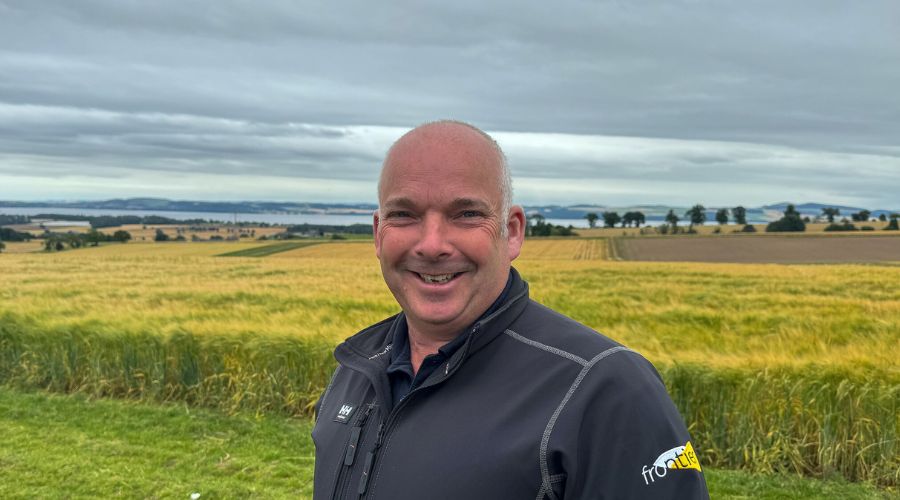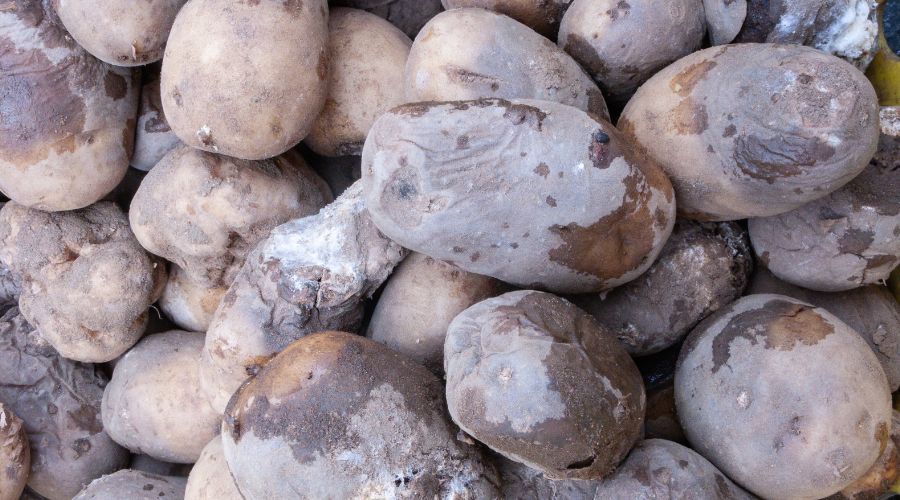Potato growers advised to disinfect stores ahead of harvest
21st August 2024
On top of basic hygiene measures, potato growers are being urged to disinfect stores with peroxyacetic acid, applied as a wet fog, to reduce the carry-over of damaging diseases ahead of this year’s harvest.

Potato stores can be dirty and dusty places, with fungal spores, which are key pathogens affecting tubers, resting on walls, ledges and within the roof space.
Potato boxes can also be a source of inoculum ahead of receiving the new season’s crop.
Frontier potato storage treatment specialist, Darren Wonnacott, said that basic hygiene practices essential for every store are a thorough sweeping and hoovering of all accessible areas.
What he describes as the “cherry on the cake” is a Jet 5 (peroxyacetic acid) treatment applied as a wet fog, but few businesses are taking advantage of its effectiveness at preventing the spread of disease.
He added: “The mist generated by the fogging machine carries that disinfectant into all the nooks and crannies, and once up into the roof space, it settles on top of those dirty, hard to reach places.”

Spore viability
SAC Consulting’s potato specialist, Kyran Maloney, who carried out spore viability assays for Frontier after fogging stores with Jet 5, said that results showed significant reductions.
The expert said that it is particularly useful against skin spot, which has smaller spores than other storage diseases and can evade basic measures such as brushing and hoovering.
“Getting rid of as much dust and dirt as possible is a great start, but particularly where you know you’ve had a particular disease problem within a store, or you’re growing for a market with very strict tolerances, using a disinfectant can be a worthwhile investment,” he concluded.

Mr Wonnacott added that leaving empty boxes in the store during application will not impact the distribution of a Jet 5 fog around a building and will help disinfect boxes around the outside of the stack.
However, the fog will not penetrate every box, so all boxes should be checked individually for any detritus such as rotten tubers.
“Particularly if you’ve had a bacterial breakdown, they should be pressure washed and disinfected as a separate operation. UV light is also a great disinfectant too, so leaving boxes outside of stores will help,” the expert advises.
Late harvest
With the harvest of seed crops just around the corner and the season later than normal in key growing areas like Scotland, the risk of some diseases could be increased this year, notes Mr Maloney.
He said that where possible, crops should be burned down in a timely fashion, lifted as soon as skins have set, and then loaded swiftly into storage for drying and curing.
Harvesters should also be set correctly to avoid crop damage, such as nicks and scuffs, which offer an easy entry point for pathogens.
Fungicide seed treatments like Gavel (imazalil) have a role to play against specific diseases like dry rot, gangrene, skin spot and silver scurf on seed, and Mr Maloney advises a risk-based approach to their use.
He said: “Varietal susceptibility, harvest conditions and end market are all factors. If you decide you need a treatment, focus on getting timing and application right.”
Mr Wonnacott also pointed out that because the available fungicides work preventatively, the earlier they are applied to seed, the better.
Some seed growers will be dual-purpose cropping, taking both a ware and seed fraction, and because seed treatments cannot be used on ware, crops should be split graded before application.
“The quicker you can do that and the closer you can apply a seed treatment to point of damage, the better the results. For many, that will be at first grading,” he concluded.

The experts said that good store hygiene reduces spread of:
- Dry rot (Fusarium spp.)
- Gangrene
- Skin spot
- Silver scurf
- Watery wound rot
- Bacterial soft rots
Read more arable news.



